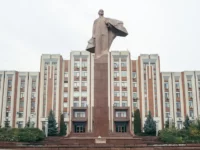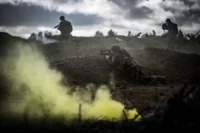
Ucrania vuelve a la palestra, con ayuda renovada
Por supuesto, nunca ha dejado de estar ahí. La guerra en Ucrania es una realidad diaria desde hace años y, aunque la atención mediática y política haya disminuido en estos últimos tiempos, los combates y el sufrimiento humano siguen siendo desgraciadamente bien reales. En todo caso, la aprobación por parte del Congreso estadounidense (refrendado de inmediato por el Senado y la Casa Blanca) de un nuevo paquete de ayuda a Kyiv –junto a otros dedicados a Israel y a Taiwán– vuelve a situar a Ucrania en el centro del escenario de seguridad continental, sin que eso signifique automáticamente que el final de la guerra esté más cerca.… Seguir leyendo »















